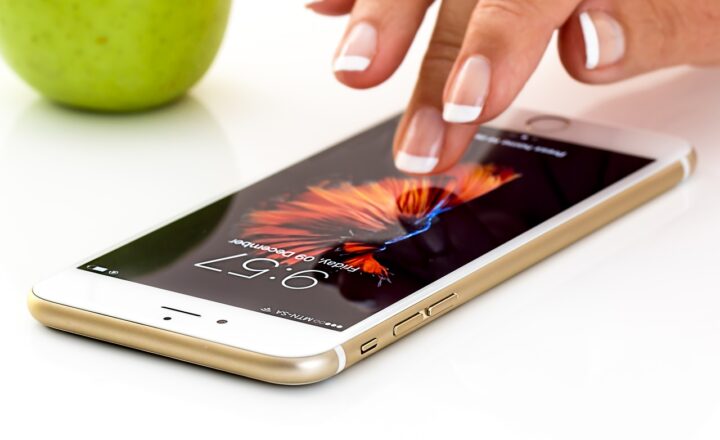Why BlackBerry Phones Were Once the Ultimate Status Symbol
November 18, 2024

In the world of technology, mobile phones have undergone a steady evolution, reflecting not only advancements in hardware and software but also shifts in culture and social significance. Among the most iconic players in smartphone history is BlackBerry, a brand that epitomized professionalism and status in the early 2000s.
BlackBerry phones were once seen as the pinnacle of style and sophistication, heavily favored by entrepreneurs, politicians, and celebrities alike. But what led to this phenomenon, and what can we learn from BlackBerry’s rise and inevitable decline?
1. The Birth of BlackBerry: A Revolution in Mobile Communication
In 1999, Research In Motion (RIM), a Canadian company founded by Mike Lazaridis and Douglas Fregin, launched the very first BlackBerry device. Initially recognized for its email capabilities, the BlackBerry was designed to enable mobile professionals to communicate efficiently and securely.
Users could send and receive emails in real-time, making it the perfect tool for business executives and those who relied on instant communication. The tiny QWERTY keyboard was revolutionary, allowing users to type quickly and accurately, a significant advantage over the numeric keypads of the time.
With features like push email and a secure network, BlackBerry quickly carved a niche for itself as a tool for serious business communication, creating a status symbol that denoted success and efficiency.
2. The Status Symbol Effect: BlackBerry in Culture
To understand why BlackBerry became synonymous with status, we need to examine the socio-economic landscape of the 2000s. During this time, mobile devices began to penetrate corporate environments, but BlackBerry emerged as the primary choice for professionals due to its security features and enterprise-focused software.
However, it wasn’t just functionality that made BlackBerry popular; it was also its perception among users. Celebrities, politicians, and corporate leaders were often seen using BlackBerry devices, which inadvertently elevated the brand’s image. Pictures of the likes of Barack Obama, Hillary Clinton, and even Oprah Winfrey with their BlackBerry devices proliferated in media, creating a cultural narrative around the phone that implied, “If you want to be taken seriously, you need a BlackBerry.”
As a result, carrying a BlackBerry became a status-driven choice for many, signifying not only financial success but also a commitment to professionalism in a fast-growing digital world.
3. The Features that Set BlackBerry Apart
The attractions of BlackBerry phones extended beyond mere prestige. Its features were robust and unique:
- Push Email: This innovation allowed instant email delivery, a game-changer for professionals who required timely communication.
- BBM (BlackBerry Messenger): BBM revolutionized instant messaging, providing a platform for users to communicate in real-time without incurring SMS fees. It was this exclusivity that added to the perception of BlackBerry as a premium device.
- Security: BlackBerry was known for its high-security standards, making it a favored choice for governmental and enterprise clients who needed peace of mind regarding data protection.
- Durability: BlackBerry devices were built to withstand the rigors of professional life, further enhancing their appeal to business users.
These features made BlackBerry more than just a smartphone; they made it a necessity for anyone who wanted to succeed in the cutthroat business world.
4. The Decline: A Shift in the Tech Landscape
Despite its towering success, BlackBerry’s decline began in the late 2000s with the advent of the iPhone and Android devices. These competitors provided broader ecosystems, touch screens, and thousands of apps, appealing to a more general consumer base.
While BlackBerry focused on maintaining its core market of business users, it failed to adapt to the changing preferences of mainstream consumers who were increasingly looking for multi-functional devices that catered to both personal and professional needs.
Moreover, missteps in branding and marketing, as well as a slower pace of software innovation, allowed competitors to overshadow BlackBerry in significance and cultural relevance. The luxury status attached to BlackBerry phones waned as more versatile smartphones emerged, leading to its eventual rebranding into BlackBerry Ltd., shifting focus to software and services rather than hardware.
5. Lessons Learned: What BlackBerry Teaches Us Today
The story of BlackBerry is not simply one of rise and fall; it’s a cautionary tale about brand positioning, innovation, and adaptability. Here are some key takeaways:
- Adaptability is Key: Markets evolve rapidly, requiring companies to be flexible and ready to pivot according to consumer demand and technological advancements.
- Understand Your Audience: It’s vital to know who your customers are and to engage them effectively. Ignoring changes in consumer preferences can be detrimental.
- Innovation Matters: Continual innovation is crucial in maintaining relevance, especially in tech industries where new players can disrupt the market overnight.
- Brand Perception: Once a brand becomes a status symbol, it must work tirelessly to maintain that image through quality and functionality to stay ahead of competitors.
Thus, as we reflect on why BlackBerry phones were once the ultimate status symbol, we also recognize the importance of making informed choices to sustain brand loyalty and relevance in a fast-paced technological environment.
Conclusion
BlackBerry smartphones will be remembered as a testament to a different era of mobile communication—one that encapsulated not only the functionalities that advanced the way we interact but also the cultural significance associated with it. As we navigate through today’s tech landscape, BlackBerry stands as a reminder that success is fleeting unless paired with innovation, adaptability, and an acute awareness of consumer demands. The lessons derived from BlackBerry’s vibrant history continue to reverberate throughout the tech industry, shaping the aspirations of future innovators.








